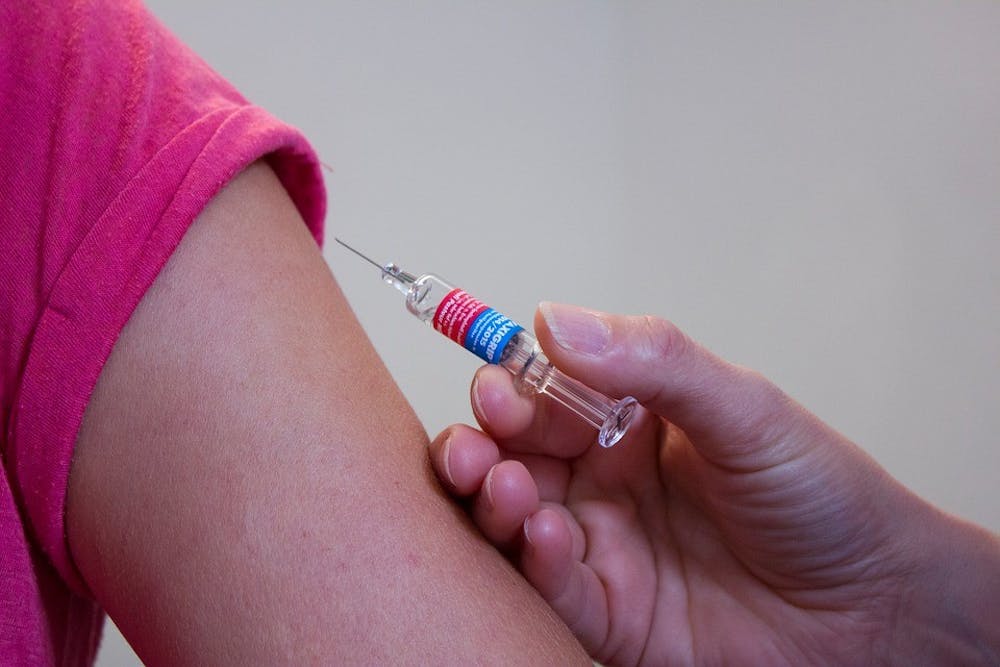The World Health Organization’s (WHO) list of 10 global health threats may surprise some this year, with uninformed parents and germs straight out of a science fiction novel making the cut. Diseases that were previously pushed to the brink of eradication are making a comeback, thanks in part to the anti-vaccination movement.
The success of antibiotic, antiviral and antimalarial treatments has also resulted in a public health threat — superbugs — which are bacteria, viruses and other infectious agents that are resistant to drug treatment. The rise of superbugs is attributed to the overprescription and incorrect usage of antimicrobial medications.
The United Nations’ (UN) health agency attributed the recent 30 percent global increase in cases of measles to “vaccine hesitancy.” This term is defined by the WHO as “the reluctance or refusal to vaccinate despite the availability of vaccines.” Vaccination is a technological advancement that has had a significant impact on global health, credited with preventing two to three million deaths per year according to the WHO. However, with some parents opting not to vaccinate their children, progress that has been made toward combating preventable diseases is being reversed.
While the return of these diseases cannot be attributed entirely to the anti-vaccination movement, some high-income countries that were close to eliminating the disease have seen a resurgence, such as the U.S.
Multiple reasons are cited by individuals for their reluctance to vaccinate. A vaccines advisory group to the WHO identified inconvenient access to vaccines, lack of confidence and a feeling that not vaccinating did not pose serious danger as key factors contributing to hesitancy.
Hannah Bruckheim, a freshman Public Health major and advocate for vaccination, supports the declaration by WHO of the danger of anti-vaxxers, or people against vaccinations. In a brief interview with The News-Letter, Bruckheim explained why she believes some parents may be hesitant to vaccinate.
“I think it has a lot to do with this new generation of parents who didn’t grow up seeing the effects of diseases like polio and measles and how it can really ruin someone’s life and how it can really hurt its victims,” Bruckheim said.
Bruckheim also expressed that well-intentioned parents should consider their options.
“Would [they] rather risk the miniscule chance of [their] child obtaining some sort of disorder from a vaccine or have to bury their child when they’re four years old because they died from whooping cough, which is a completely preventable disease. They think that they’re making a decision for [their child’s] health when they’re really doing the complete opposite.”
Antibiotics, antivirals and antimalarials have saved countless lives and changed our health system, but the overprescription and incorrect usage of such treatments have led to drug-resistant superbugs.
The WHO stated that our current drugs may soon be unusable.
“Antimicrobial resistance — the ability of bacteria, parasites, viruses and fungi to resist these medicines — threatens to send us back to a time when we were unable to easily treat infections such as pneumonia, tuberculosis, gonorrhea and salmonellosis,” a WHO representative said, according to CNN.
The development of antibiotics, antivirals and antimalarials have influenced modern medicine to a great extent. Most notably, the inability to prevent infections stands to compromise surgery and other procedures such as chemotherapy.
Resistance to tuberculosis drugs is also a daunting challenge. It is estimated that this disease causes approximately 10 million people to fall ill and 1.6 million to die annually, with numerous patients suffering because their antibiotics do not work.
“In 2017, around 600,000 cases of tuberculosis were resistant to rifampicin — the most effective first-line drug — and 82 percent of these people had multidrug-resistant tuberculosis,” WHO said.
Drug resistance is a result of the overuse of antimicrobials in people; animals, especially those intended for human consumption; and in the environment. The agency is developing a plan to combat antimicrobial drug resistance by raising awareness, decreasing infection and encouraging caution when using such drugs.
In order to protect against these threats to public health, it is important that individuals receive all recommended vaccinations and that the instructions of health-care practitioners are followed closely when taking antibiotics, antivirals or antimalarials. Ultimately, everyone can make a difference in improving the challenges of global health.





